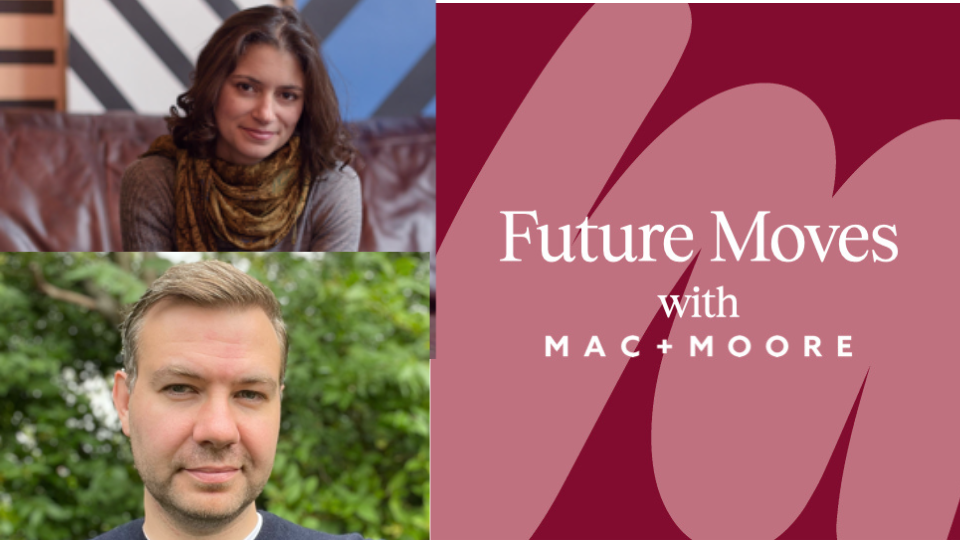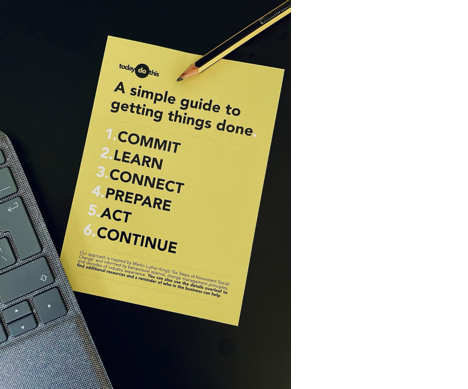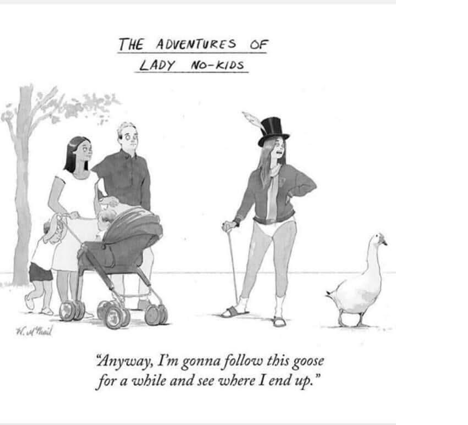Future Moves with Today do This

Future Moves with Today do This
Hello folks,
It's been a year hasn't it... And I can't quite believe that we're 5 weeks away from finishing it. Every one of the 8 years we've been running our business has given us the opportunity to learn something new. And although this one has been a tough one, we're taking with us some valuable lessons, some wonderful connections and the proof that our resilience (aka staying power) is one of our super powers. If you haven't already make sure you take stock of everything you've achieved this year. I bet you'll be surprised by just how much you've conquered - even when the odds may have been stacked against you.
For anyone new to the party, Future Moves is here to ask business leaders and experts all the big questions on brand-building for tomorrow's world. Brought to you by us, Jess + Nat, award-winning founders of brand consultancy, Mac+Moore.
Let’s dive in…
💫 How a single piece of paper can change the world
💫 Why engaging every department in an organisation can create more positive impact
💫 How brands can use what they’re already really good at to create real authentic impactful work
Meet the founders of Today Do This who help companies achieve ambitious impact commitments by enabling employees to take action using the skills they already bring to work every day.
Back in 2016 Nat and I were members of the House of St Barnabas and were lucky enough to meet Daianna, one of the founders of the business. Since then I’ve been following the journey via their brilliant actionable newsletter that encourages us to be the change we want to see in the world. In today’s Future Moves we asked what brands can practically and authentically do to create positive impact, why getting everyone involved in impact led work is crucial for success and the power of a simple idea to create action.
Jess: Tell us a bit about yourself and how Today Do This came to be?
Daianna: I'm Daianna, one of the co-founders and Managing Director of Today Do This. In a nutshell, we help companies achieve ambitious impact goals by empowering their employees to connect the skills and responsibilities of their day jobs with the social and environmental issues their company needs to address. I've been working in sustainability for 25 years, starting back when it was still very uncool.
Robbie: I'm co-founder and creative director of Today Do This. I was working at 1000heads, and Daianna was at EDF, when we were both selected for a scholarship with the Marketing Academy in 2012. In one residential session, we were paired up to work together and quickly bonded over a general dismay for those who talk a lot, but don’t do much. Some years later we were chatting and I told Daianna about this weird little idea I couldn’t shake…can you change the world with a piece of paper? It's such a simple thing. Everyone can get access to it. There's an open sort of approach to it. And so that’s how we came to work together. One of the first things we did was create a kit which was everything you need to change the world in an envelope. It was a comment on how simple things can have a big impact. It generated a lot of interest and we started to think about how we could use our backgrounds to evolve the central idea into a business.
Jess: What does an ideal client look like to you?
Daianna: Right now, our main clients are people who have the remit for impact within their organisation. So often, that's people like Chief Sustainability Officers, Impact Directors and Heads of ESG. We've also worked with people who are more focused on innovation and brand. But what all these people have in common is that impact is part of their mandate. And they'll have the knowledge, either instinctively or through experience, that they're not going to be able to create change in their business alone… that it requires involvement and practical action from colleagues of all stripes.
Jess: What are the challenges they face and how does Today Do This help?
Daianna: It is a tough job to meet the ambitious goals that a lot of companies have set themselves, and when you're a small team with a small budget—which, these days, most teams and companies are—it's really difficult to achieve those goals. If a company has a goal to achieve, such as net zero carbon emissions, then a three-person sustainability team isn't going to be able to do that on their own. They have to engage people in their facilities or manufacturing teams, people in their finance team that have to start making better decisions about how and where the company's money is invested, people in marketing who have a role in terms of the kinds of products that are made and sold and how those get into customers’ hands, and lots of other teams besides. All these things will have a climate impact, and so potentially everyone in the company has a role to play in helping achieve that net zero goal.
Our job is to get them to think about what change they can each make as part of their day-to-day work, and to help them start doing that. Crucially, we don't just leave them with a bunch of ideas. We get them to choose one single idea, and then we help them get started on that idea. We work with companies over the course of at least a few months to make sure that those people who we've engaged, keep going and are able to overcome the challenges that inevitably come up in a big organisation: the inertia, the lack of time, the need to get other people on board and lots of other common obstacles.
Robbie: We see the problem we solve for our clients as scaling their ability to make an impact. We tend to work with people who have made a commitment to change. But often they haven’t thought about what they are actually going to do, now, next quarter and down the line. The plan can't be to wish and hope that someone else, or some fancy technology, is going to come along and solve all of their problems. So we ask what can you get started on now with the skills and resources you have, hence the company’s name.

Jess: You’ve been working in impact-led work long before it was “cool.” What have you seen change during that time and how do you feel about where we’re currently at with positive impact and change?
Daianna: Just before the pandemic, you had all the Fridays for Future marches with kids taking themselves out of school and going on climate marches. Then during the pandemic, when George Floyd was murdered, you saw millions of people posting a black box on social media and, sure, that act itself wasn't going to make a big difference, but it was more evidence of people taking notice of stuff that’s messed up in the world, and wanting to do something about it. Which was very different from the pervasive apathy that I remember on these same kinds of issues when I was at university and starting my career. A few years ago, investors and fund managers started publishing statements saying climate change is something we have to take seriously as a business community. Then a lot of companies started talking more about the environment, inequality, and other issues they’ve played a role in exacerbating.
Sadly, a lot of those issues have since been dragged into the culture wars, which is why a lot of “greenhushing” has been happening more recently. For a while, companies who were speaking out were celebrated for doing so, and then suddenly they were being attacked. They’ve found themselves stuck in the middle, unsure what to do, and so some have reverted to doing nothing. Which is a huge shame and a lost opportunity to show leadership, courage and integrity… to separate the continuing reality from the distracting noise. It’s perfectly sensible for individual companies to refocus on what issues are most relevant for them, but that’s not the same as hitting “pause” to wait and see how the politics pan out.
Robbie: What is the purpose of business? Traditionally it's been to create value, primarily in the form of profit for shareholders. That remains, but the definition of value is shifting. I think where we are at the moment we're seeing the correction and overcorrection as businesses tackle this question of value in their own ways and it’s all quite chaotic. When it settles down, it will ultimately be because people have taken a bit more care and time to think about what role they play in these things. With any given issue it’s not going to be desirable for everybody to put the same amount of attention or the same amount of time and effort into everything. We've had a slightly weird time when that's what people were trying to do and realising it just doesn’t really serve anyone.
Jess: What do brands need to think about when they’re trying to create impact-led campaigns?
Robbie: Take D&I. Let's say it’s Pride month and you put a rainbow logo up on LinkedIn. OK, but it’s not what you say that matters, it’s what you do. What are you doing to support employees with different needs and concerns? What are you doing for your customers and partners? And why are these things relevant? It’s also worth asking if you really need to talk about it publicly. Generating value from these activities, when done properly, will come in terms of retention, recruitment, growth and opportunities and at its best that will generate the kind of word of mouth no PR campaign can compete with.
Daianna: I've been judging the D&AD Impact Award for almost a decade now. I was surprised this year at how often I came across work that I was really impressed with. For example, Renault, the car company, created an “Airbnb for electric car chargers”. All across France, if you have an electric car charging station in your home, you can rent it out on an app they created. And if you are travelling long distance in an electric car, range anxiety still being a concern for many, they've dealt with that problem by saying “hey, if you think you're gonna run out of battery, you can stop it at this nearby house over here, and you can use their fast charging station to get your car back in shape to keep going.” I also saw a great entry from a Colombian grocery chain called Makro who is tackling food waste by putting innovative stickers on fruit and veg. So that if, for example, you buy a bunch of bananas, there’s a sticker on them that goes from green to yellowish-green to bright yellow to sludgy yellow to brown. And for each of those colours, the sticker tells you what you can make with those bananas. This stops people throwing away food that’s perfectly useful. Like these, all the best examples tackle a real problem with a practical solution. They’re not just comms campaigns, which are almost always pretty pointless in my opinion—they’re campaigns in the truest sense of the word as defined in a dictionary: an organised course of action to achieve a goal.
Jess: Impact work can be quite heavy. What fuels you and fills your tank up that allows you to do the work that you do?
Daianna: This goose cartoon (see below) summarises my life outside of work. As someone with no kids, I have the luxury of maximising my creative free time, which I find really fulfilling, and yes I do take random walks sometimes! Having always loved music and art, a few years ago I started to learn to play the cello. Last year, I started taking a ceramics class as well. During the pandemic, I started working a four-day week, making Fridays my writing days. And since then, I’ve been writing children's picture books about the power of small actions to make a big difference.

How we move forward
A book, podcast or cultural movement that's made you think differently?
Daianna: About a year ago, I went to a conference that was ostensibly about changing the world for the better through innovation and technology, and it was almost completely dominated by men's voices. I realised suddenly that almost every aspect of our lives is dominated by men’s voices, and I really craved a different perspective. Since then, I have been exclusively reading books by women. One in particular that made me think differently was Ursula K. Le Guin’s Space Crone. It made me realise how one-sided the stories we’re told can be, and how much of an effect that's had on how our society works, and how different things could be if more women's perspectives were spotlighted in the way that men's have been for so long, and so often still are.
Robbie: The things I remember that have really changed my way of thinking are the things that totally buck the ‘normal’ way of doing things. I read If on a Winter's Night a Traveler by Italo Calvino when I was about 18 years old and it blew me away. For the first time, I realised you could make something simple and beautiful that didn’t follow any of the typical rules, and it would be more exciting and impactful for it.
Which future technology (or application of existing tech) are you optimistic for?
Daianna: I’m a proud Luddite. So I am going to subvert this question. I love it when a new technology creates a groundswell of activity around a technology it replaced. For example, how the rise in digital music led to a resurgence of record stores. I'm optimistic for whatever non-tech backlash there is to AI.
Robbie: I’m optimistic about technology moving to the background so that the foreground can be a little more human. Most importantly, how do we make sure young people (and ourselves) are less enamoured with ‘in-your-face’ technology so we can prioritise human interactions again?
Your hope for creativity in the future?
Daianna: I hope that creativity draws more inspiration from, and collaborates more with, nature in order to solve both environmental and social problems. I think there's a lot to learn from the natural world. And I think part of the dangers of our obsession with technology is that you lose sight of better solutions that have been with us for millennia.
Robbie: We need to be using creativity more democratically and where it's actually needed. I think too much talent has been focused on pointless stuff that is effectively for the gain of about eight billionaires in the world. The talent exists, we just need to focus it in the right way.
Who do you follow online for ideas, inspiration + advice?
Daianna: Kai Brach writes a newsletter called Dense Discovery. He's a great writer, and has a really nice way of putting into words ideas I’ve mulled in my head, but not yet articulated properly, on how to make the world fairer and the planet more healthy. Plus, there are always lots of really good recommendations in there on books, projects and articles that I always find really enlightening.
Robbie: I am distinctly and oddly disloyal to content. It’s a strange obsession! If I subscribe to stuff I’ll unsubscribe after about 3 months as a rule and look out some new voices to learn from. That’s why I love Kleroteria, an email lottery whereby one subscriber is chosen each week or so to email everyone else. I’ve subscribed to similar projects in the past and they’re always illuminating.
One word to describe your hope for the future?
Daianna: Women
Robbie: Receptive. To ideas that are different.